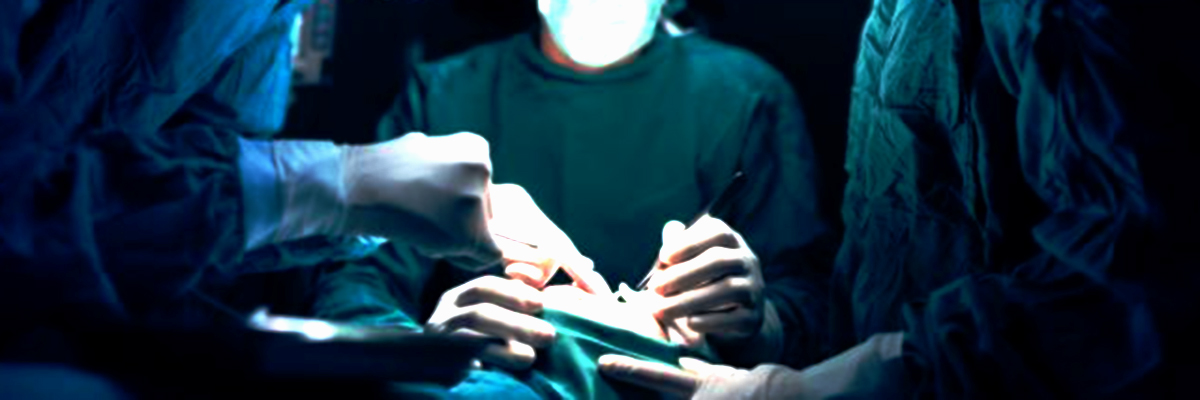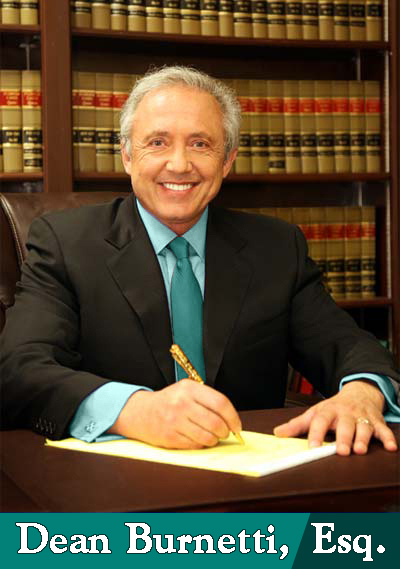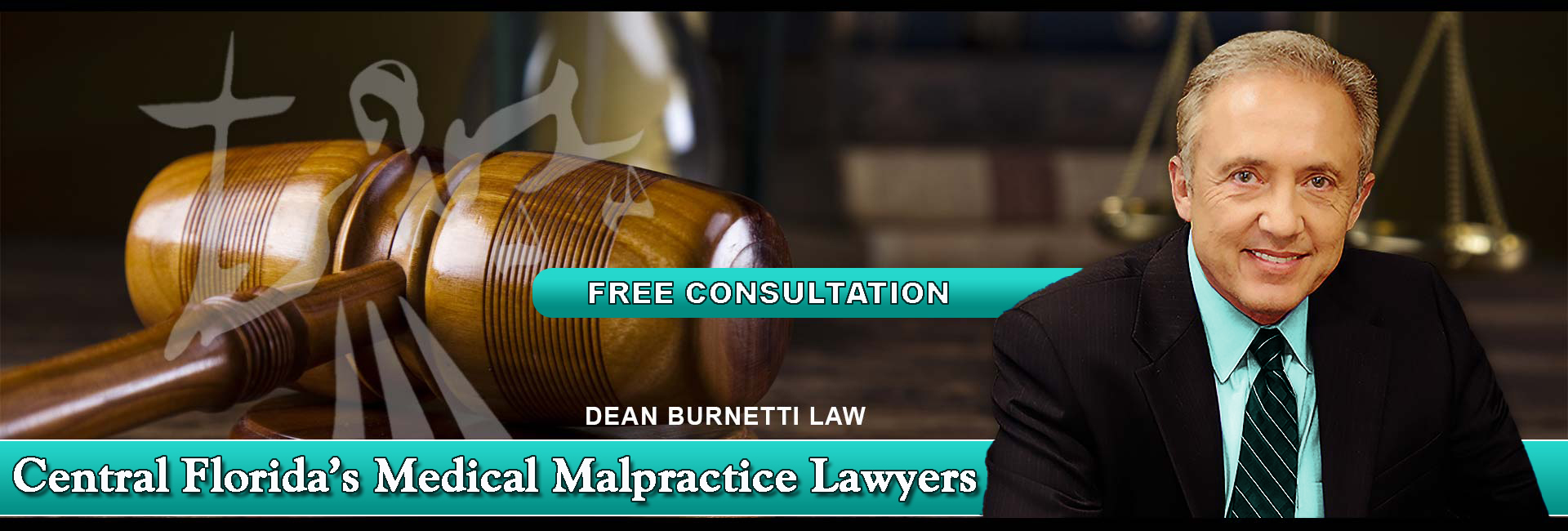What to Expect in Your Medical Malpractice Case
The Central Florida Medical Malpractice Lawyers at Dean Burnetti Law provide professional Medical Malpractice, Medical Negligence, and Dental Malpractice Attorney Legal Services in Polk County, including: Lakeland, Auburndale, Bartow, Haines City, Lake Wales, Mulberry, Polk City, and Winter Haven; in Hillsborough County, including: Brandon, Tampa, Riverview, Valrico, and Plant City; in Pinellas County, including: Clearwater, St. Pete, Gulfport, Treasure Island, Largo, Oldsmar, Treasure Island; as well as in all of the surrounding Greater Central Florida Areas.

When an injured patient files a medical malpractice or negligence claim, Florida law requires that they meet the following criteria:
1-Breach of the Standard of Care :
Medical malpractice cases in Florida are extremely complex. Due to these complexities, you need an attorney who is experienced in Florida medical malpractice law. They must also have access to as much information surrounding your case as possible. Your lawyer will request necessary medical records to evidence your state health prior to, during, and after the malpractice event. Next, Your lawyer will create a timeline of events that led to your malpractice incident.
After your attorney reviews your medical records, they will seek a medical expert to review them and form an opinion. A medical expert is a doctor with the same type of medical experience and specialty as the at-fault physician. That expert must be willing to testify that the physician deviated from the “standard of care” when treating the victim. This means that the physician must have fallen below the standard of a competent medical professional in the same situation after considering all relevant circumstances and facts surrounding your injury. Florida’s Malpractice Act requires this medical expert to sign a sworn affidavit. This affidavit must state that they believe that the at-fault doctor breached the standard of care. Without this affidavit, the court will automatically dismiss your claim.
2-Proximate Causation:
If the medical expert finds that the at-fault physician deviated from the national standards of care, they must then agree that such deviation caused the victim harm. In other words, you and your attorney must prove that the doctor’s breach was the “proximate cause” of your injury. There must be evidence that without the doctor’s negligence, your injuries would not have occurred.
3-Damages:
Medical malpractice damages include medical expenses, lost wages, and the calculated value of your pain and suffering. There must be significant harm or damage as a result of the alleged medical malpractice. This is because initiating a medical malpractice claim is very expensive (typically $25,000 or more). The law requires that a medical expert must testify in a medical malpractice case. Such experts generally charge hefty fees for their expertise and time. They may require dozens of hours to review your medical records before they can even form an opinion. Afterward, they write a lengthy, detailed report of their findings. This report is a costly necessity. Therefore, your damages must exceed the dollar amount that the case will cost to pursue.
What happens next:
If you meet the above criteria, your attorney can initiate a malpractice claim against the negligent physician and/or medical facility. After this claim is initiated, the defense has 90 days to conduct a similar investigation. Their attorney will determine their stance and if they feel that a deviation of the standard of care occurred.
After the 90 days, the defense attorney will either make a settlement offer, deny the case, or do nothing. If they deny the case or do nothing, your attorney may, at that time, file a lawsuit.
Once your attorney has determined that you have a green light on pursuing your case, Florida law allows you to pursue compensatory damages, up to a certain amount. The law places a cap of $500,000 cap on non-economic damages (compensation for "pain and suffering") in medical malpractice lawsuits against most health care practitioners, and a $1,000,000 cap on non-economic damages if the malpractice resulted in death or a vegetative state.
Exceptions to the Rule:
“Res ipsa loquitur” is a Latin term meaning “the thing speaks for itself.” Under certain conditions in medical malpractice claims, a legal doctrine known as res ipsa loquitur may be invoked. Examples include when a medical instrument is left inside a person following surgery or when a person’s left leg is scheduled for amputation, but their right leg is removed. Obviously, these examples would not have occurred unless there was apparent negligence by someone other than the patient.
To successfully invoke the res ipsa loquitur doctrine, the victim’s attorney must show that:
- Evidence of the cause of the injury is unavailable
- The injury is not the type of damage that ordinarily occurs in the absence of negligence
- The victim was not responsible for his or her own injury
- The instrumentality that caused the injury was under the exclusive control of the at-fault doctor and/or facility
- In the ordinary course of events, the victim’s injury would absolutely not have occurred without negligence on the part of the at-fault doctor and/or facility
If you were injured or if a loved one was killed by Medical Malpractice, Dental Malpractice, or Medical Negligence, you have the right to a qualified attorney who is skilled in Florida's complex malpractice law and is knowledgeable about your type of injuries. Call (863) 287-6388 in Polk County or (813) 287-6388 in Hillsborough County or Pinellas County today to schedule a free confidential consultation with an experienced Medical Malpractice lawyer at Dean Burnetti Law.

Our Statement of Faith
We declare that Jesus Christ is the Lord of all. That the Holy Spirit abides in the midst of all within our halls. That the power of prayer is our shield and sword.
We declare that Christ is the cornerstone of this firm.
LAKELAND OFFICE
1937 East Edgewood Drive, Suite 102,
Lakeland, Florida 33803
Lakeland: (863) 287-6388
BRANDON OFFICE
413 Lithia Pinecrest Road,
Brandon, FL 33511
Brandon: (813) 287-6388
CLEARWATER OFFICE
2727 Ulmerton Road, Suite 250,
Clearwater, FL 33762
Clearwater: (813) 287-6388


